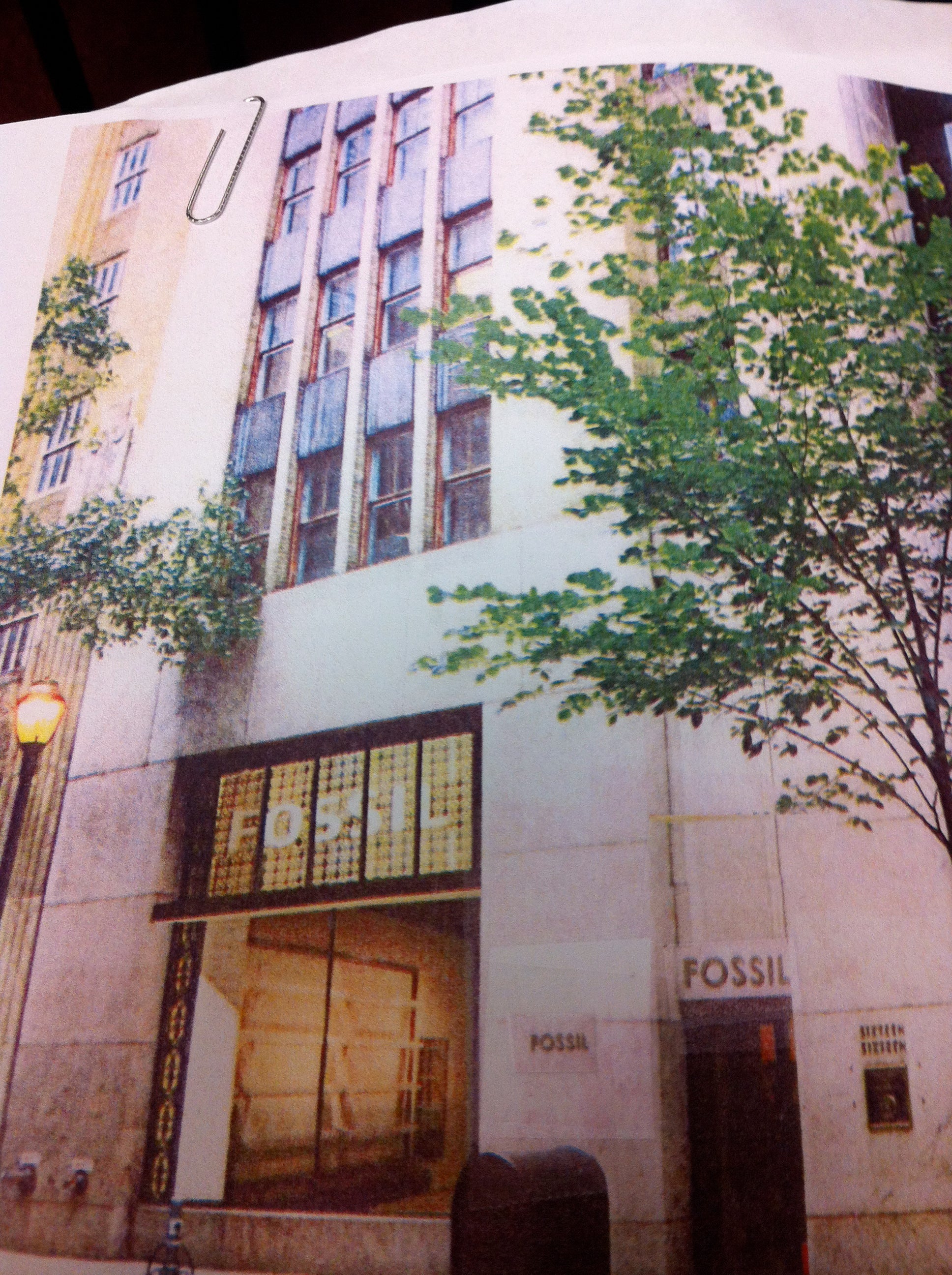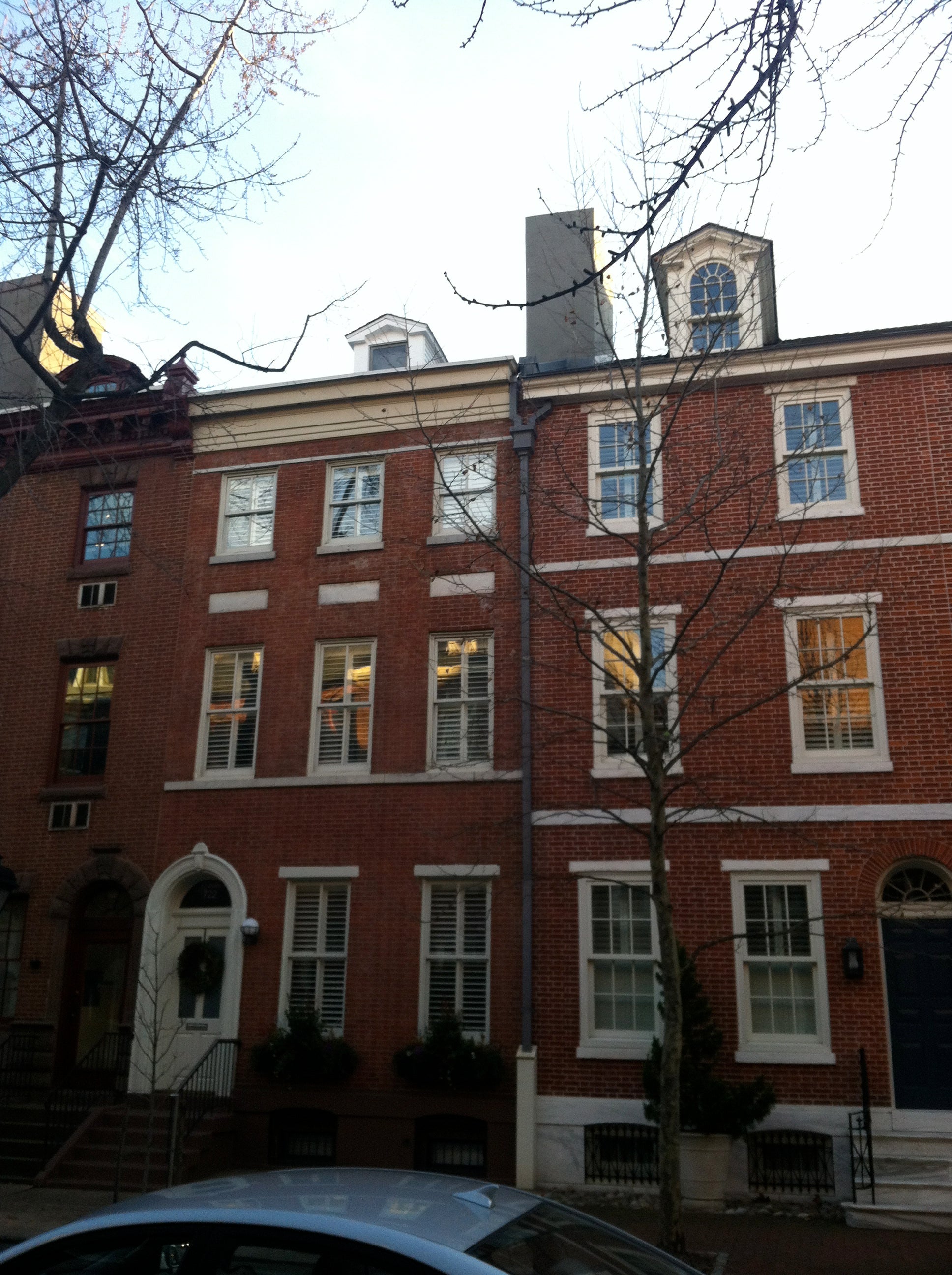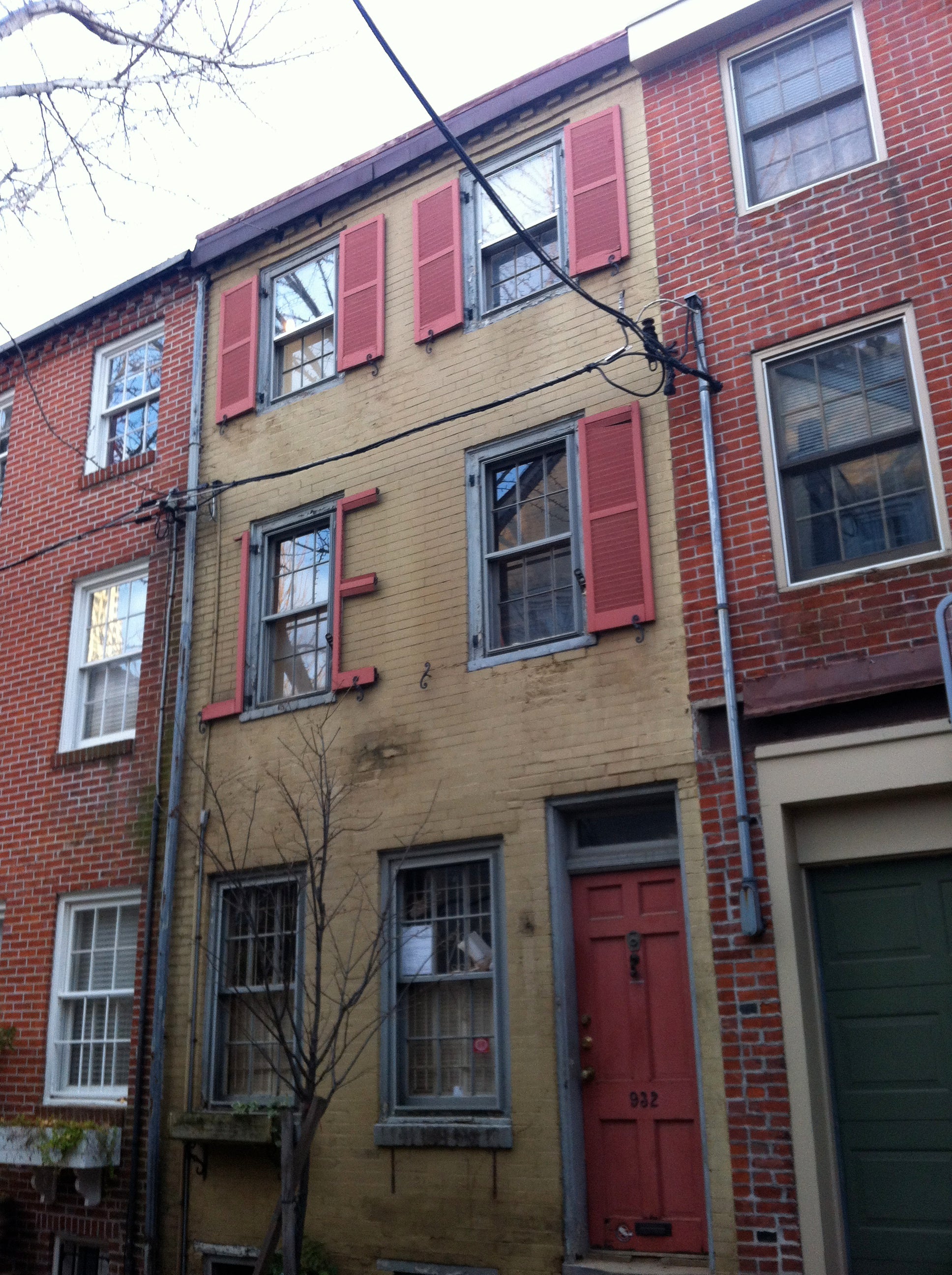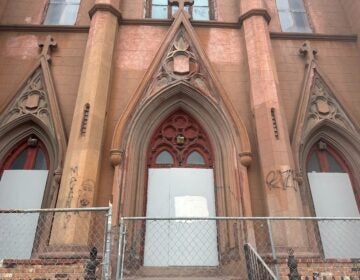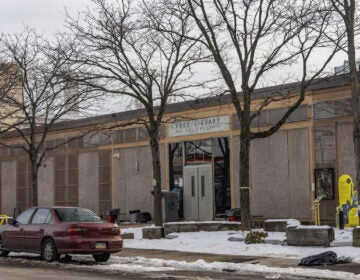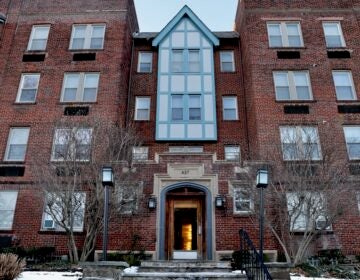Historical Commission’s Architectural Committee has final 2011 meeting
The Historical Commission’s Architectural Committee reviewed a lengthy slate of mostly residential applications at its final meeting of the year on Tuesday. It saved the most impactful for last, in recommending denial to a new store, Fossil, seeking to add signage to a decorative storefront at 1616 Walnut Street, an individually designated office building in the Rittenhouse Fitler Historic District.
Some Committee members and even Executive Director Jonathan Farnham seemed lukewarmedly okay with the proposal — even though Commission staffers had recommended denial — but others took issue with the plan’s partial obscuring of the Art Deco metalwork that is a feature of the skyscraper’s storefronts, as well as the addition of the company’s name over the doorway.
Committee chair Dominique Hawkins suggested that signage be hung behind the glass rather than from it or further suspended away from the glass, while John Gallery of the Preservation Alliance, speaking from the audience, presented images of other stores on Walnut Street that get by without hanging signs in front of their windows. The applicants will next bring their plan, perhaps altered as Committee members have suggested, to the full Commission in January.
Other cases in the Rittenhouse Fitler district included the replacement of a storefront window (fenestration only) and the addition of a door for a restaurant on the 2000 block of Walnut Street, and the installation of a deck and stairhouse on a Delancey Street residence. Both received recommendations for approval, with the staff to review details.
In two instances, the Committee reviewed projects that had exceeded previous permissions granted by the Commission. In the Manayunk Historic District, an owner asked for a one-story rear addition to his 1850 home, but erected a two-story one. In reviewing a requested legalization of this move, staff noted an attempt to also include a 3rd floor dormer, as well as an “implied” roof deck. The Committee recommended approval of the two-story addition, but noted that the dormer should be a maximum width of 5 feet and include only a window, not a door.
Committee members denied, however, a request to legalize vinyl replacement siding on a dormer that was added to a home in the Society Hill Historic District after permission for roof work was granted. In outlining the case, staff member Randal Barron expressed concern that not only was the material not historically accurate but that historic details may have been removed. The Committee’s denial included a provision that the dormers be restored to best reflect the style of neighboring dormers.
The Committee also reviewed a request in nearby Washington Square to add a deck to the roof of a three-story addition to an individually designated 1830 home. After receiving assurance that the deck would not be visible to passersby or neighbors, the Committee recommended approval, provided staff receives confirmation that the building’s chimney does not need to be extended. In that case, it said, new plans would need to be submitted.
The December meeting began with a second review of a request to enlarge a 1745 individually designated home in Queen Village with a two-story addition placed on top of an existing one-story addition, following last month’s denial due to incomplete plans. This time, architects presented two alternatives. Both require a 4-foot cutout of historic fabric, with the first seeking to connect the floors by rising above the cornice work and the second by linking at a point below the existing cornice work.
In recommending denial of both options, staff member Barron noted that building up from the existing first floor of the addition without connecting on the upper buildings might be an acceptable alternative. Ultimately, however, the Committee recommended approval of the second plan, provided disruption of the existing cornice remain minimal, and that the width of the proposed opening be as minimal as possible.
Contact the reporter at jgreco@planphilly.com and follow her on Twitter @joanngreco
WHYY is your source for fact-based, in-depth journalism and information. As a nonprofit organization, we rely on financial support from readers like you. Please give today.



